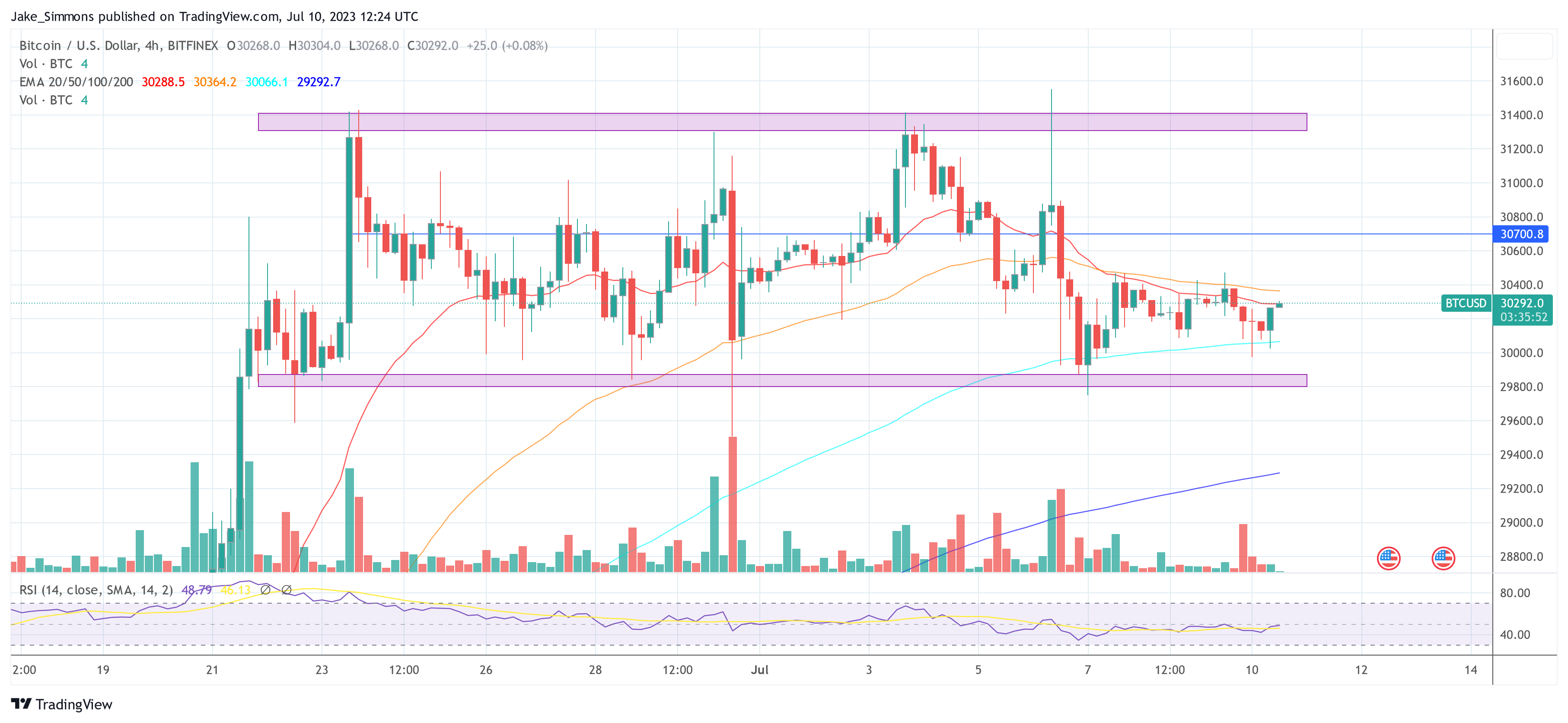Is Bitcoin Vulnerable Through ETFs, Like Gold?
In a recent newsletter, Singapore-based crypto asset trading firm QCP Capital raised the question of whether the introduction of a Bitcoin exchange-traded fund (ETF) could lead to price manipulation by institutions, similar to what has happened in the gold market. The bitcoin spot ETF filing by BlackRock and many other institutional giants has created a lot of euphoria in the market, but the manipulation issue has not been addressed much.
According to QCP Capital, “Just like BTC, gold is seen as a competitor to the dollar, especially ever since Nixon removed the dollar from the gold standard in 1971. Having full control of gold allows institutions to defend the dollar, especially if they have various vested interests in protecting the greenback.”
Web3 Watch – 10 Jul 23
⏰It’s out! In this edition, we cover:
1/ Bitcoin Spot ETFs vs Gold 🥇Spot ETFs.
As we wait for BTC spot ETFs, we examine the launch of Gold spot ETFs and their impact on the price of gold.
— QCP Capital (@QCPCapital) July 10, 2023
Gold’s History Of Manipulation
While the aforementioned statement represents the perspective of QCP Capital, it is important to note that discussions surrounding gold price manipulation have existed among investors for a lot of years. Many analysts believe that manipulation in the gold market is a reality.
Analysts argue that major financial institutions have the ability to influence the gold price and, given the potential for profit, would be motivated to engage in such practices. Although the specific methods of manipulation can be complex and intentionally opaque, understanding the general mechanism sheds light on the concerns raised by QCP.
The report highlights the historical manipulation of gold prices and the influence institutions have exerted over the market since the introduction of gold ETFs and shares in 2003 and 2004:
The gold markets have also been subject to manipulation by bad actors in institutions over the years, after the gold ETFs and shares were released since 2003 and 2004.
It notes that the gold market experienced a significant price increase of over 500% from 2003 to 2011, after the first gold ETF was approved, followed by a crash of around 50%. Subsequently, gold prices remained suppressed in a sideways movement for approximately seven years, before a new bull run lifted the gold price to a new all-time high in August 2020.
“Since the ~90% run up from 2018 to 2020, gold price has been choppy, and failed to break the 2k resistance level, over the past 3 years, making it a pretty mediocre investment in the recent years”, QCP adds.
Remarkably, the report also points out specific instances of gold price manipulation by institutions. It mentions that former Deutsche Bank traders were convicted in 2020 for attempting to manipulate gold and silver prices from 2008 to 2013.
Moreover, JP Morgan “gold boss” was convicted last year for fraud, attempted price manipulation, and spoofing in a multi-year market manipulation scheme involving precious metals futures contracts spanning over eight years.
Another common method of gold price manipulation involves bullion banks, which often hold only a fraction of the gold they sell. While banks may claim to hold 10% of the gold, some estimates suggest that the actual number could be as low as 1%. This is possible because buyers typically store the gold in the bank where it was purchased, relying on a paper representation of ownership. This fractional reserve system creates an opportunity for manipulation.
Implications for Bitcoin
Given the historical manipulation in the gold market, concerns have been raised by QCP about the potential for institutions to manipulate the price of Bitcoin through the introduction of ETFs. If institutional investors with significant resources and influence were to enter the Bitcoin market via ETFs, there is a possibility that they could exert control and potentially manipulate the price for their own benefit. QCP concludes:
Following a BTC spot ETF, we wait to see if there would be similar price action in the asset, and similar moves by institutions in the future.
A note from the author:
Unlike gold, Bitcoin has the possibility to create transparency about actual BTC holdings via the blockchain technology. In this respect, the hurdles for manipulation with “paper” Bitcoin are likely much higher for institutions.
It should also be noted that ETFs only make up a portion of the gold market, alongside countless other products (that are probably more suitable for manipulation). In addition, according to some experts, the price of gold is manipulated by central banks around the world which are hoarding gold themselves – something that also distinguishes it from Bitcoin.
Also important is that Bitcoin has a fixed supply and rate of emission which is set in stone by code, while gold miners (under pressure from governments) can control the quantity of new supply. Therefore, a comparison between Bitcoin and gold without noting fundamental differences seems to be flawed.
At press time, the Bitcoin price stood at $30,222, remaining in the trading range of the past two weeks.

Featured image from iStock, chart from TradingView.com
